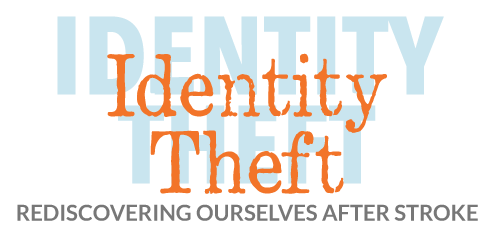
28 Feb Meet Susan, who hopes to see more resources for those with aphasia
I had my stroke on November 16, 2016. That whole day I didn’t feel well and had a type of headache that I had not had before. That night, around 7pm, my husband and I were just finishing dinner and I went upstairs. I still did not feel well and when I went to lie down, I immediately knew something was wrong. I called out for my husband, Michael, and by the time he got there I had slid down to the floor and was having a stroke. The next thing I knew EMS was putting me in the ambulance and taking me to the hospital.
The next couple weeks I was diagnosed with having had a severe stroke, which caused me to have Aphasia – a speech disorder that makes it hard to communicate. Having a stroke changed my life as I once knew it.
Before my stroke, I was always on the go. A lot of my time was spent with my 90-year-old dad and my family. I would see them 4 out of 5 days a week. I never stayed at home during the day and spent most of my time out and about, specifically bargain shopping. Now, on a normal day, I feel as though I have to push myself to do things that I used to easily do. For example going on a walk, I have to say, “Ok Susan, get up and go outside.”
After my stroke, I could not drive. Not being able to drive was something that really took my identity away. When I told my husband, kids, and doctors that I wanted to drive, they said, “You can later.” Everything was “later,” but I wanted to do it immediately to gain back some of my independence.
I am now driving with my left foot. The stroke caused me to lose sensation on the right side of my body, making it hard for me to know if I was pushing the gas or the break, so I had a left foot accelerator put in my car. It was a rough couple of months learning how to drive with my left foot, but now I have no problems even though it still is a little awkward.
Up until the last two months, I have spent my mornings doing therapy. I had two therapists: one who came to my home and another outpatient therapist. The biggest challenge I have faced is the lack of resources for adults who need speech therapy. I have and still am fighting to have therapy at least once a week. I am currently working to go to a private practice for therapy to continue treatment.
My goal is to have more resources for adults with Aphasia especially in the Wilmington, NC area. My family did a lot of research after my stroke and found a program at Shirley Ryan AbilityLab in Chicago that was specifically for Aphasia patients. In April 2017, I went to the program in Chicago, which helped me more than anything thus far. I went to therapy 8am-5pm, five days a week, for a month. The program helped me so much with my speech and also gave me a reason to keep going and try harder.
I want people in my area that have Aphasia to have access to a program like the one I went to in Chicago. I want people to have a full life. It’s okay to be who you are. Yes you may have had a stroke, but that’s okay. It’s just your new self. We can still have fun. We can still love life.
You can listen to Susan’s interview for Strokefocus Podcast below:
